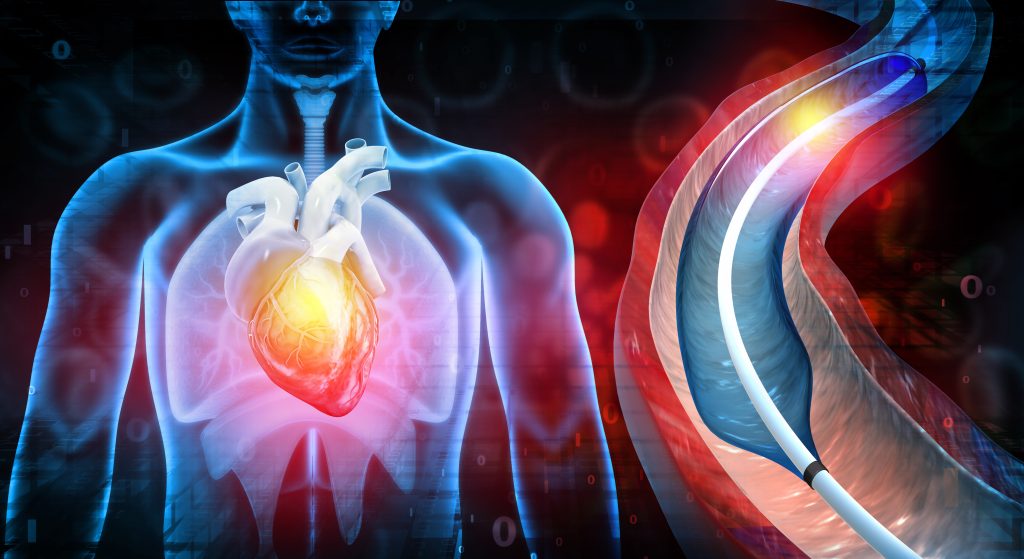Why regular check-ups with Dr Garcia can detect early warning signs
Why regular check-ups with Dr Garcia can detect early warning signs
Blog Article
Understanding the Relevance of Cardiology in Modern Healthcare Services
Cardiology plays an essential role in modern-day health care, especially as heart problem remains to be the leading reason for death worldwide. Breakthroughs in diagnostics and treatment have changed individual treatment, allowing earlier treatments and boosted results. The change towards preventative cardiology empowers individuals to handle their health and wellness proactively. As technology remains to evolve, the combination of ingenious solutions might better redefine cardiology's effect on public health, prompting a more detailed examination of arising trends and their ramifications.
The Occurrence of Cardiovascular Disease and Its Influence on Public Wellness
Although cardiovascular disease stays the leading cause of death internationally, its impact extends far beyond specific clients to impact public wellness systems and economic situations. The high prevalence of heart condition puts a substantial strain on medical care resources, requiring raised funding for treatment, prevention, and rehab programs. Public wellness efforts should resolve risk variables such as obesity, smoking cigarettes, and sedentary way of livings, which contribute considerably to the climbing incidence of heart conditions.Moreover, the economic concern connected with heart problem is tremendous, incorporating not only direct clinical costs yet also indirect costs connected to shed efficiency and early mortality. Communities encounter challenges in managing these expenses, often bring about variations in health care gain access to and end results. As the populace ages and lifestyle-related dangers continue to intensify, the seriousness for efficient cardiology interventions comes to be extremely important. Dealing with heart disease is not only an issue of private wellness but likewise an important public health and wellness concern.
Advances in Heart Diagnostics and Imaging Techniques
Recent advancements in heart diagnostics and imaging techniques have transformed the area of cardiology, boosting the capacity to monitor and discover cardiovascular disease. Techniques such as cardiac MRI, CT angiography, and echocardiography have become progressively innovative, giving in-depth photos of heart frameworks and features. These modalities permit the very early recognition of problems like coronary artery illness, heart failing, and valvular disorders.Moreover, advancements in non-invasive diagnostics, such as wearable innovation and remote tracking gadgets, have equipped clients and medical care companies. These tools assist in real-time monitoring of heart rhythms and other essential indications, bring about timely interventions. Additionally, artificial knowledge is being integrated into imaging analysis, enhancing accuracy and efficiency in medical diagnosis.
Developments in Treatment Choices for Heart Issues
Current innovations in cardiology have actually resulted in significant developments in therapy alternatives for heart conditions. These include innovative surgical strategies that boost procedural outcomes and arising drugs that use new avenues for therapy. As the area develops, these developments play an essential function in improving client treatment and results.
Advanced Surgical Techniques
Innovations in surgical strategies have actually changed the landscape of cardiology, using brand-new expect clients with heart conditions. Minimally intrusive treatments, such as catheter-based interventions, have substantially reduced recuperation times and health center remains. Strategies like robotic-assisted surgical procedure boost accuracy, allowing specialists to browse complex physiological frameworks with higher precision. Furthermore, improvements in imaging modern technology promote real-time visualization during procedures, boosting end results. Transcatheter aortic valve substitute (TAVR) exemplifies a development in treating aortic constriction, enabling shutoff substitute without open-heart surgical procedure. Furthermore, hybrid approaches that integrate surgical and catheter-based methods give tailored services for different cardiac problems. These sophisticated medical methods not just improve client safety and security but also broaden therapy options, underscoring the crucial duty of innovation in contemporary cardiology methods.
Arising Therapies and drugs
As the landscape of cardiology remains to advance, emerging therapies and drugs play a crucial duty in improving therapy choices for heart disease. Advancements such as unique anticoagulants and advanced lipid-lowering representatives have actually changed the administration of heart diseases, significantly lowering patient morbidity and mortality. Furthermore, the growth of gene treatments and regenerative medicine supplies promising opportunities for treating problems formerly considered permanent. Clinical tests are consistently exposing the effectiveness of these treatments, pressing the boundaries of standard therapies. Moreover, the combination of digital health technologies helps with individualized medicine, permitting customized treatment strategies based upon genetic and way of living aspects. Collectively, these developments emphasize the vibrant nature of cardiology, boosting individual outcomes and redefining standards of care in modern healthcare.
The Function of Preventive Cardiology in Individual Treatment
Preventative cardiology plays a vital duty in person care by concentrating on the recognition of threat elements that add to cardiovascular disease. Through way of living alteration strategies and early discovery techniques, health care carriers can successfully lower the occurrence of cardio events - Dr Garcia. This positive method not only boosts patient end results yet likewise promotes long-lasting wellness
Risk Factor Recognition
While cardiovascular illness continue to be a leading root cause of morbidity and mortality worldwide, effective danger variable identification functions as a keystone of precautionary cardiology. Recognizing danger elements such as high blood pressure, household, diabetes, and hyperlipidemia background is crucial for very early treatment. Healthcare professionals utilize numerous screening methods to evaluate these aspects, enabling for customized safety nets. Furthermore, recognizing a client's lifestyle selections, such as smoking cigarettes and physical inactivity, further educates danger analyses. This thorough assessment allows clinicians to develop customized care strategies intended at mitigating dangers. By prioritizing threat variable recognition, medical care systems can enhance patient end results and reduce the overall worry of heart diseases, eventually contributing to boosted public health and wellness methods and resource allotment.
Lifestyle Alteration Approaches
A wide variety of researches highlights the crucial role of lifestyle modification strategies in lowering heart disease danger. These approaches encompass nutritional changes, enhanced exercise, smoking cigarettes cessation, and weight management. By adopting a heart-healthy diet rich in fruits, vegetables, whole grains, and lean proteins, people can decrease cholesterol degrees and blood stress. Normal exercise enhances the heart and boosts overall cardiovascular wellness. Furthermore, stopping smoking greatly minimizes the danger of heart problem and improves healing rates for those with present problems. Weight administration better contributes to cardiovascular health and wellness by alleviating other risk factors such as diabetes mellitus and hypertension. Executing these lifestyle changes not just advertises private wellness however likewise acts as a keystone of precautionary cardiology in individual treatment.
Very Early Detection Strategies
Lifestyle modifications substantially add to lowering heart disease threats, yet they are most efficient when matched with very early detection techniques. Preventative cardiology stresses the relevance of identifying possible heart problems prior to they rise right into severe problems. Methods such as blood pressure monitoring, cholesterol testing, and advanced imaging technologies like echocardiograms play important functions in evaluating cardio health. Biomarkers and hereditary screening likewise boost the accuracy of early discovery, enabling for tailored precautionary methods. Routine cardiac risk assessments encourage doctor to step in proactively, potentially protecting against heart assaults and strokes (Cardiology). By integrating these very early detection methods right into regular treatment, patients can take advantage of timely way of living interventions and targeted treatments, inevitably improving and improving end results high quality of life
Integrating Technology Into Cardiology Practices
As improvements in innovation remain to improve various areas, the integration of innovative devices and systems into cardiology techniques has become crucial for enhancing person treatment and end results. Telemedicine platforms permit cardiologists to keep track of people from another location, improving access to care while minimizing the problem on health care facilities. Wearable gadgets, such as smartwatches, make it possible for continual heart rate tracking, alerting both clients and doctors to possible issues in real-time. Additionally, expert system (AI) is being used to analyze substantial amounts of heart data, assisting in early medical diagnosis and individualized therapy plans. Advanced imaging techniques, including 3D echocardiography, boost visualization of heart frameworks, causing much more exact treatments. Electronic wellness documents (EHRs) streamline client info management, guaranteeing that cardiologists have immediate access to vital information. With each other, these technological improvements are changing cardiology, promoting positive monitoring and improved health and wellness end results for patients with cardio problems.
The Relevance of Client Education And Learning and Involvement
Individual education and learning and interaction play a crucial function in the management of cardio health and wellness. By equipping people with expertise about their conditions, therapy choices, and way of living adjustments, health care providers encourage people to take an active function in their treatment. This proactive strategy can bring about boosted adherence to prescribed medicines, dietary adjustments, and workout regimens, inevitably decreasing the danger of complications.Engagement also promotes a strong patient-provider relationship, urging open communication and trust fund. When individuals really feel notified and involved, they are more likely to voice worries and ask concerns, which can cause far better professional outcomes. Furthermore, academic sources, such as workshops or digital platforms, can enhance understanding and advertise self-management methods. Generally, focusing on client education and learning and interaction is essential for boosting cardio wellness, improving high quality of life, and minimizing healthcare costs connected with heart diseases.
Future Patterns in Cardiology and Their Possible Effect

Regularly Asked Concerns
What Lifestyle Adjustments Can Decrease Cardiovascular Disease Danger?
The existing inquiry addresses way of living adjustments that can substantially decrease cardiovascular disease threat. Cardiologist near me. Embracing a well balanced diet regimen, engaging in regular exercise, keeping a healthy weight, taking care of tension, and avoiding tobacco can especially improve cardio health
How Can I Recognize Early Signs of Heart Problems?
Recognizing very early indicators of heart troubles entails monitoring signs and symptoms such as upper body discomfort, shortness of breath, tiredness, and irregular heart beat. Prompt awareness of these indicators can trigger essential clinical examination and treatment for far better results.
What Are the Distinctions Between Cardiologists and Heart Surgeons?
The differences between cardiologists and cardiac surgeons hinge on their duties; cardiologists mostly take care of and identify heart problems via non-invasive methods, while heart cosmetic surgeons perform surgeries to remedy structural heart concerns. Each plays a vital, unique duty.

How Usually Should I Obtain My Heart Health And Wellness Checked?
The regularity of heart medical examination differs based on individual risk aspects. Generally, grownups ought to go through evaluations each to 2 years, while those with status quo may require even more regular assessments as recommended by medical care specialists.
What Role Does Genetics Play in Heart Problem Threat?
Genetics significantly influences heart condition risk, with domestic patterns showing inherited problems. Certain genetics can predispose individuals to high blood pressure, cholesterol problems, and various other cardio issues, highlighting the importance of hereditary testing in reviewing heart health. Heart disease remains the leading reason of fatality around the world, its effect expands far past individual clients to impact public wellness systems and economies. Public health campaigns need to address threat elements such as weight problems, smoking, and inactive way of lives, which contribute significantly to the climbing incidence of heart conditions.Moreover, the economic concern connected with heart illness is tremendous, encompassing not just straight clinical costs however additionally indirect expenses connected to lost efficiency and early death. Precautionary cardiology plays a crucial function Cardiology in individual treatment by focusing on the identification of risk aspects that add to heart illness. Artificial knowledge (AI) and device discovering are improving diagnostics and individual tracking, allowing early discovery of heart conditions. The distinctions in between cardiologists and cardiac cosmetic surgeons exist in their roles; cardiologists mostly identify and take care of heart conditions via non-invasive methods, while cardiac doctors execute surgical treatments to deal with architectural heart my response issues.
Report this page